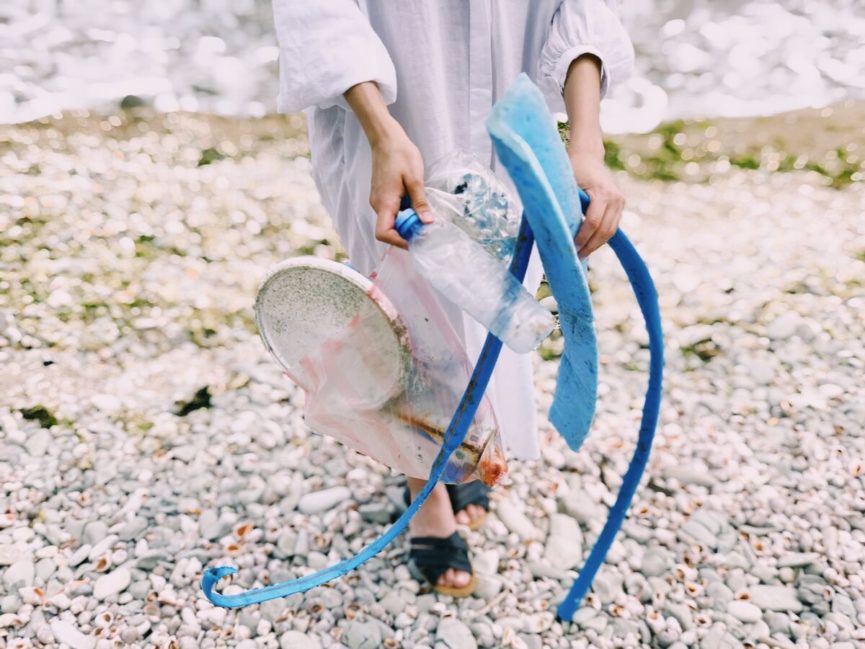Strolling through an uninhabited island off Guraidhoo in the Maldives. The clear blue waters lapping at the coral-dusted shore. We were in paradise.
Then I stepped on a plastic bag. Then another. My daughter’s foot became entwined in a rejected piece of plastic wire. I freed her foot, Just as my son spotted a gorgeous reddish-brown stingray… mesmerised we watched it swim around a plastic bottle bobbing in its path.
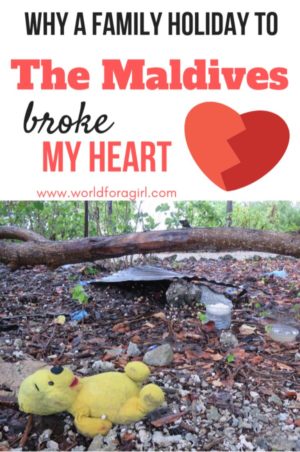
Disclaimer: This post contains affiliate links. Should you click to purchase, it is at no extra cost to you, although I may receive a small commission.
Not far away, a luxurious resort of water villas and high-end restaurants, detached from but overlooking a local Maldivian island of over 1800 people with schools, a magistrate court, a home for people with special needs and a rubbish dump. A dump the size of a football pitch piled high with rotting waste and smouldering fires.
The beaches of the uninhabited island were overflowing with litter. Plastic bottles caught in the waves continuously washed up and then pulled away. Broken polystyrene trapped inside a tangle of old fishing nets and shards of broken glass. A stingray with a hue of red and gold swam past a tin can.
I was heartbroken. Heartbroken for the Maldivians who live in (and off) an ocean now full of plastic. For hardworking Maldivians who work for rich tourists on beautifully manicured islands whilst living on islands with overspilling rubbish dumps.
I’m heartbroken that in a world that should know better, we don’t do better.
In 2100, my son and daughter may tell their young grandchildren of a beautiful island where they once went on holiday. A group of tropical islands with hundreds of generous and friendly inhabitants that once rose from the sea where now an island of plastic particles floats and dive schools explore the abandoned, underwater homes.
As a mother, I’m heartbroken for the coral reefs and tropical islands that my children’s children may never get to visit.
If you’d like to go and see the stunning Maldives before it’s too late. Check out our post How a week in the Maldives was our cheapest family holiday this year!
A Paradise awash with Litter
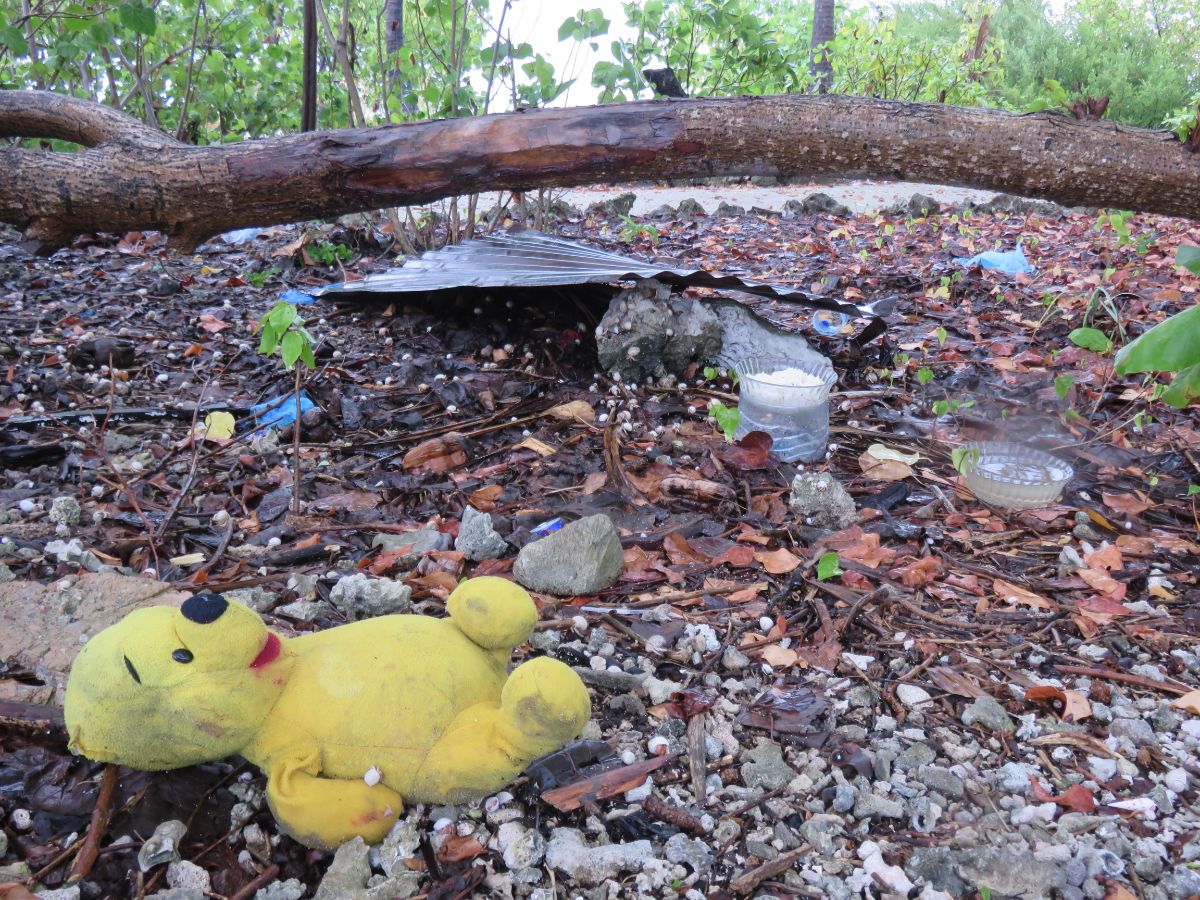
Hermit crabs live amongst litter on a tiny uninhabited island in the Maldives
The deserted sand island
One morning, we took a trip to a deserted sand island overlooking one of the plush resorts.
Was it paradise? Yes. But only after our family spent 5 minutes collecting plastic bottles and used carrier bags.
Yes, really, the only reason that the resort beaches and bikini beaches look like paradise is that EVERY SINGLE morning an army of workers go out and tidy away all the rubbish that the tide has brought in. That’s the harsh reality.
The universal appeal of modern convenience
Like everywhere in the world, people want convenience. We all want to take places faster, do things quicker, buy pre-prepared products. In the Maldives, people just want the same as you and me.
Island nations have few places to dispose of their broken phones, empty bottles or food wrappers.
We were told by locals that most of the rubbish in the Maldives is burnt on an island near Male dubbed “Rubbish Island”. Whilst this process destroys the bulk of the rubbish, the particles and pollutants released can still pose problems to wildlife and of course, the ocean. From the size of a rubbish dump, we walked pass on one island the refuse collectors are struggling to keep up with the quantity.
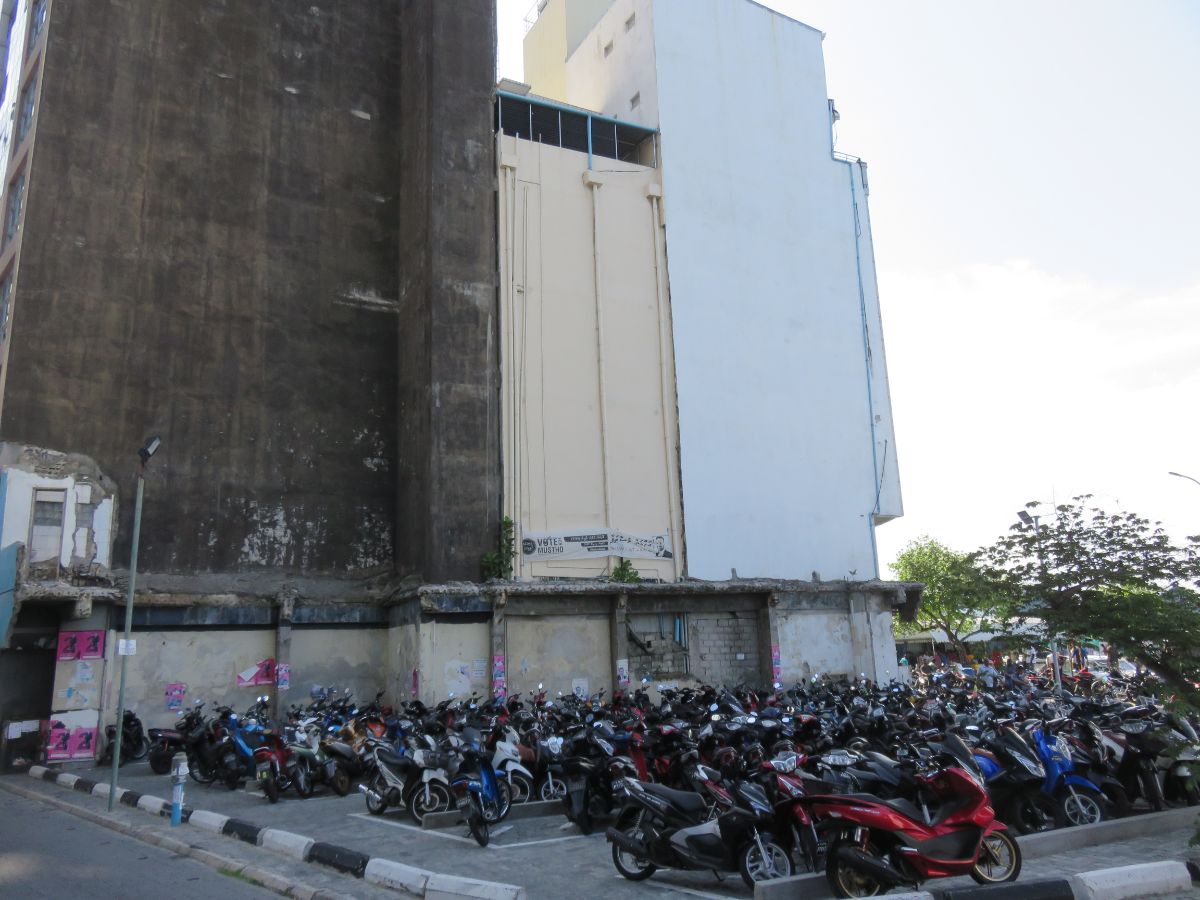
Male, the capital of the Maldives, is chocked with motorbikes. The city is easily walkable!
Resorts for rich at the expense of locals
We are a family of independent travellers. We travel to experience and learn from other cultures but as many of us as there are, package holiday guests will always outnumber us.
Westerners (and now Russians, East Asians and Latin Americans) are sold a dream of relaxation, of paradise, of true bliss. The Maldivian tourism industry is built on this narcissistic desire of luxurious laziness.
Travelling with locals on the ferries, we passed island after island of high-end, exclusive resorts. Resorts that no longer ‘part of the Maldives’ but rather their own capitalist-driven enterprises of local labour, their own laws (alcohol, pork etc) and of course, their own temporary populations of pleasure-seeking tourists more invested in their free time than the country’s future.
If you want to find out more about why package holidays aren’t for us, read about our time in the Cape Verde Islands and how we paid to escape the resort!
Rising Sea Levels
According to reputable sources, the Maldives may be mainly underwater as soon as the year 2100.
Imagine! That the Maldives, the fancy resorts, the schools, the roads, the hospitals and 500-year-old mosques are lost to the sea – within our lifetime, with a few decades.
Imagine a whole population who become refugees. They lose their ancestral homes and lands. Their roots, their way of life.
The population will flee or be relocated. Perhaps to Sri Lanka, India or Australia. Let’s not gloss over the discrimination they’ll face as unwanted migrants, the riots and even wars that might ensue what an entire population is removed to a new land. Let’s not pretend that it’ll be pretty. Resources are limited in every country.
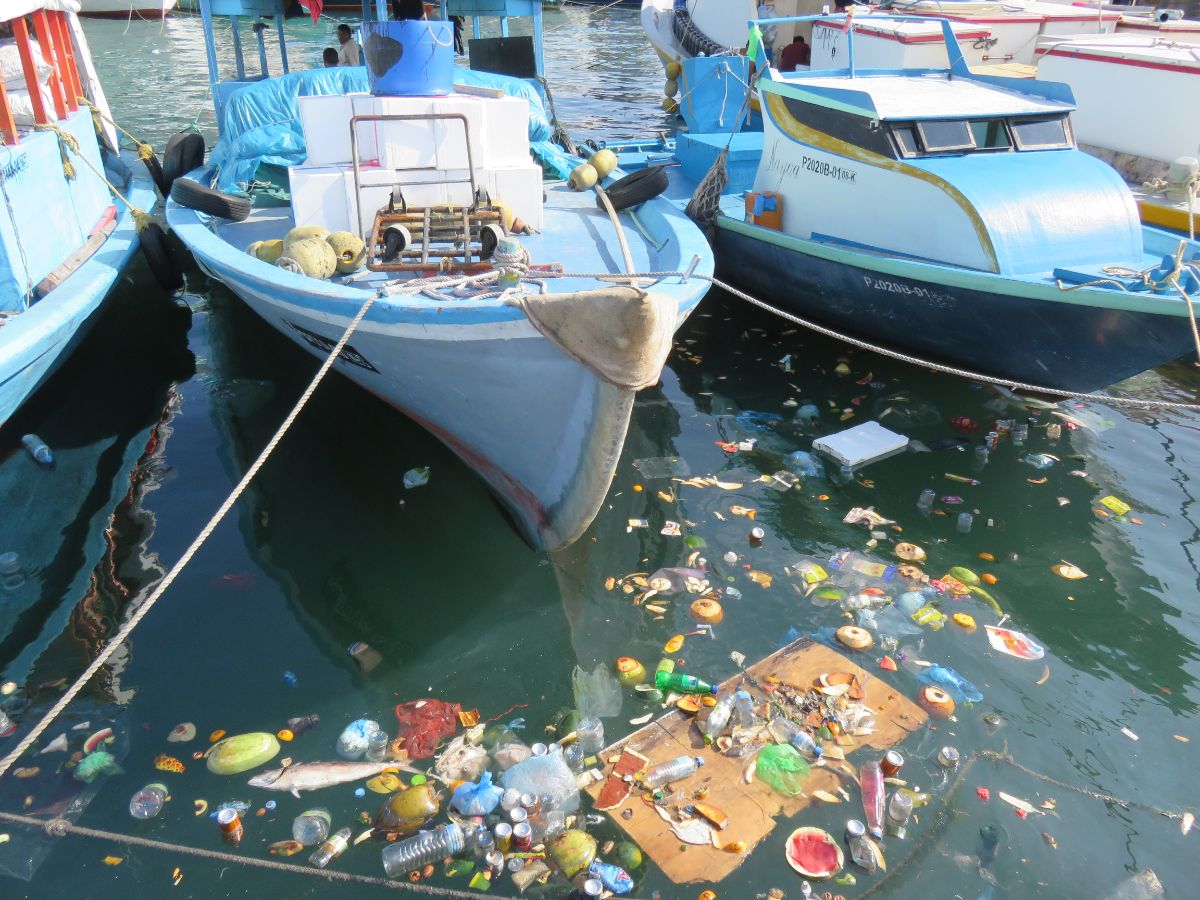
The harbour in Male was full of litter! This is just a snapshot. The reality was much worse.
The decaying coral of a once-vibrant underwater world
Nearly all the coral we saw on two snorkelling trips in the South Male Atoll was completely dead.
I’d love to say that the dead coral is all down to the Great Indian Ocean Tsunami of 2004 that covered the entire country under a metre of water destroying reefs as well as homes. I’d love to absolve myself and my fellow tourists but I can’t.
It’s difficult to believe that the destruction of the coral reefs is entirely natural when we had to pick plastic bags out of the way during our snorkel.
As our captain pours lashings of washing-up liquid into your snorkel mask and washes it out in the sea right over the last parts of living coral.
When we (and all the other tourists) are wearing layers of sunscreen and insect repellent as we submerged ourselves under the water to ogle the last remaining fish.
Like tropical rainforests, the coral reefs are the ‘lungs’ of Planet Earth. And like tropical rainforests, we are doing an excellent job at destroying them.
What can we do to save Mother Earth?
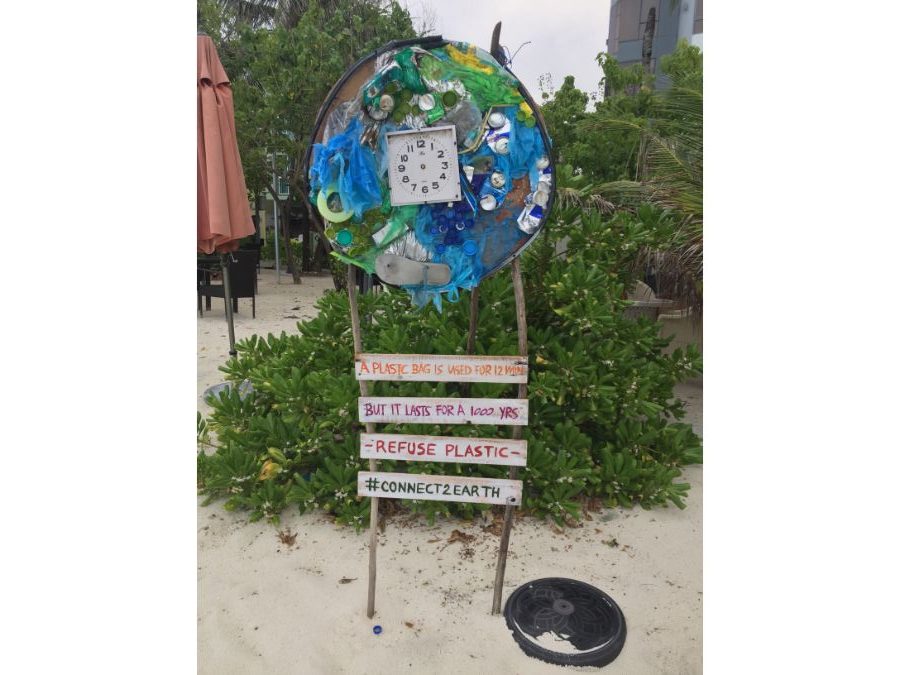
In the Maldives, locals are beginning to raise awareness about plastic pollution – like this sign on a beach.
Mothers (and fathers) what can we do to preserve the Maldives?
What can we do to support the local people who will lose everything: their culture, their language, the places of worship, their livelihoods, their heritage?
The government of the Maldives has been working hard for decades trying to raise global awareness of the risks of rising sea levels. Some initiatives are proving successful such as creating islands above sea-level. But more needs to be done.
The plastic bottles. The candy wrappers in the sand. The fish caught in plastic bags. The broken sun-loungers. It makes me mad at myself and mad at the world. What can we as individual tourists really do to help?
First, we can think about what we bring into the Maldives.
Here are 5 ideas on how to bring less plastic and pollutants into the Maldives?
Stop buying plastic bottles of water and instead take a small filter bottle for purifying water. For filtering tap water (never seawater!) buy ultralight water filters or SurviMate Filtered Water bottles.
You know this already but say ‘no’ to plastic straws. Instead, bring your own reusable ones if you need them. Check out Amazon for a range of reusable bamboo straws and metal straws. The Family Room coffee bar in Hulhumale actually has glass ones. Very cool but totally unsuitable for packing and children!
Reusable grocery bags – bring them along on holiday and use them. They make great beach bags too!
Wear wet suits rather than sunscreen when swimming and snorkelling. Let’s not pollute the ocean just because you want a tan! Decathlon has really reasonably priced snorkelling tops for the whole family. Grown-up snorkelling wetsuits and children’s wetsuits.
Another option is to wear biodegradable sunscreens that don’t pollute the ocean. Try Ocean Friendly Sun Cream from Reef Repair or Stream2Sea SPF 30 Reef Safe Sport Sunscreen. Both available on Amazon.
Pin for later!
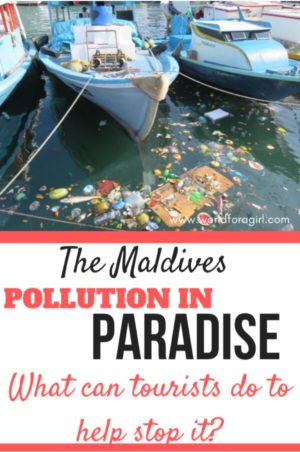
If you like our content we’d love to keep in touch! Follow us on Facebook | Twitter | Pinterest or subscribe to our newsletter to keep up with the latest news from World for a Girl.

